Abstract
Institutional ethics committees (IECs) are part of a growing phenomenon in the American health care system. Although a major force driving hospitals to establish IECs is the desire to resolve difficult clinical dilemmas in a quick and systematic way, in this paper we argue that such a goal is naive and, to some extent, misguided. We assess the growing trend of these committees, analyse the theoretical assumptions underlying their establishment, and evaluate their strengths and shortcomings. We show how the 'medical consultation' model is often inappropriately applied to IECs and suggest that IECs must operate under a different framework. Finally, we argue that IECs should be valued for the process they facilitate, and not for the product that they are, often unreasonably, expected to deliver.
Full text
PDF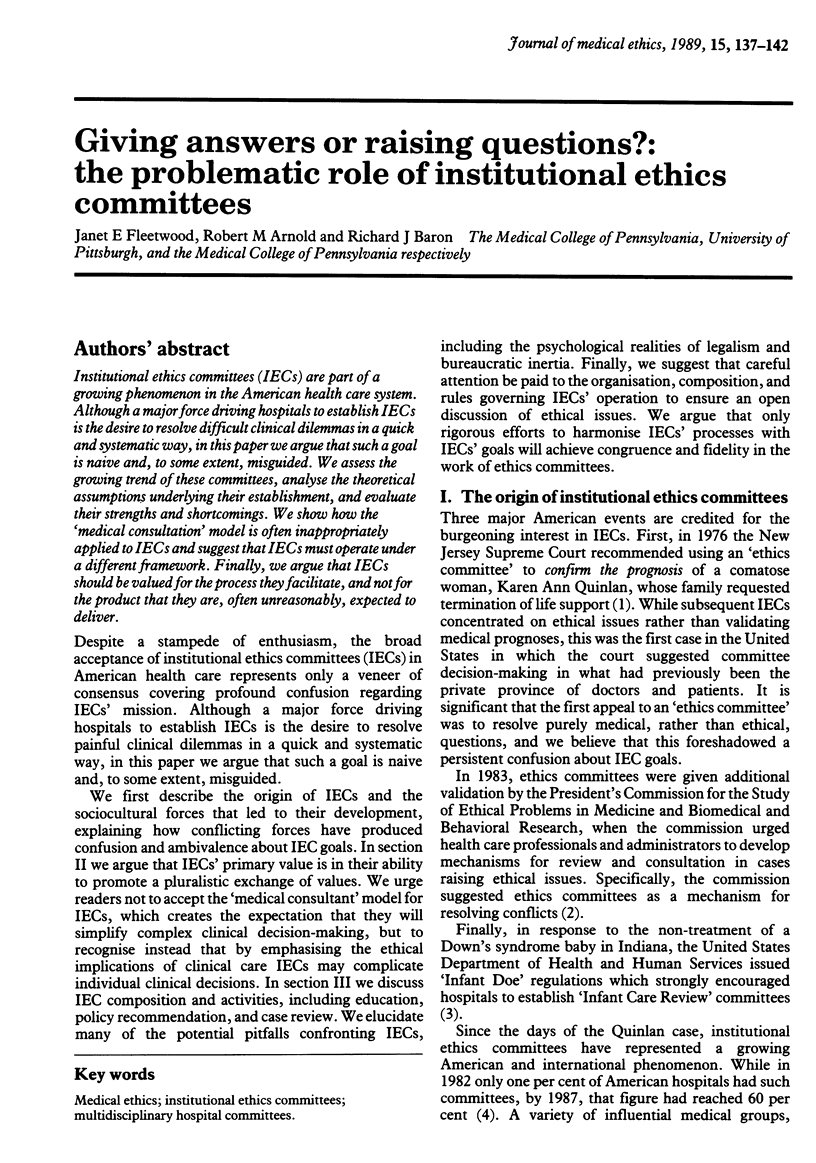
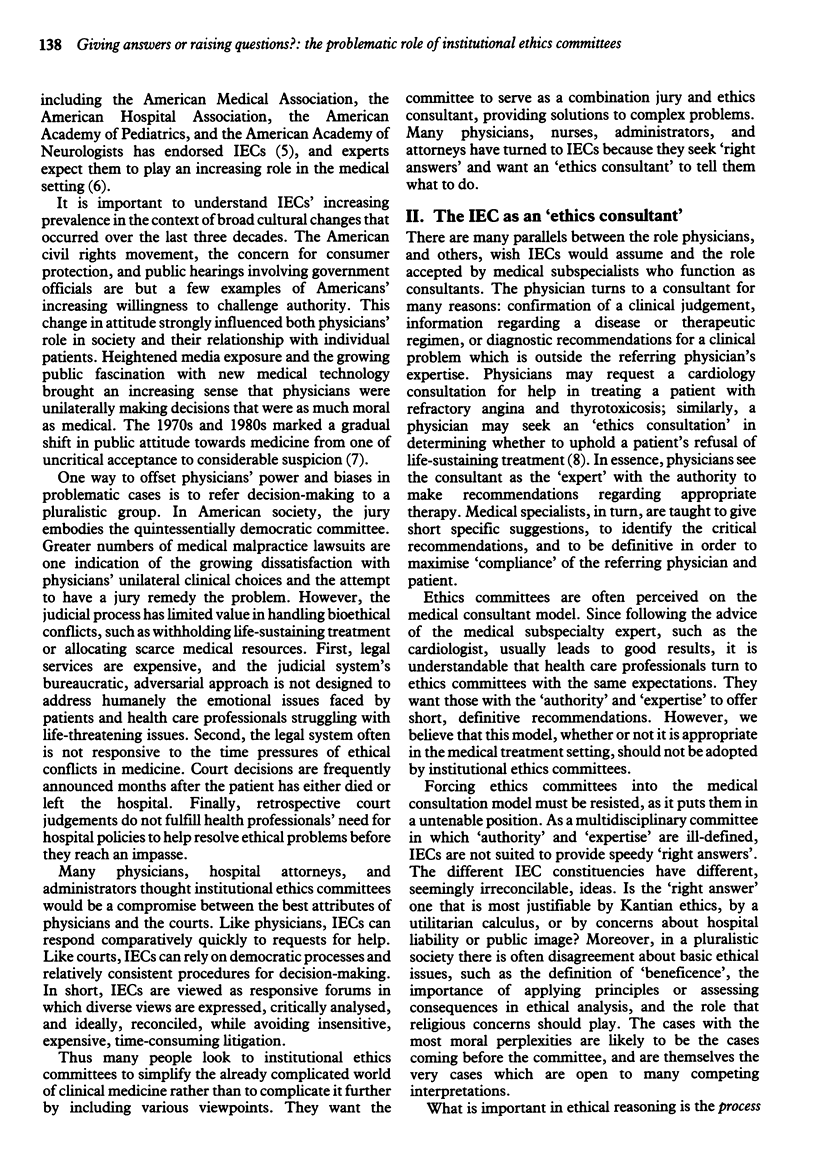
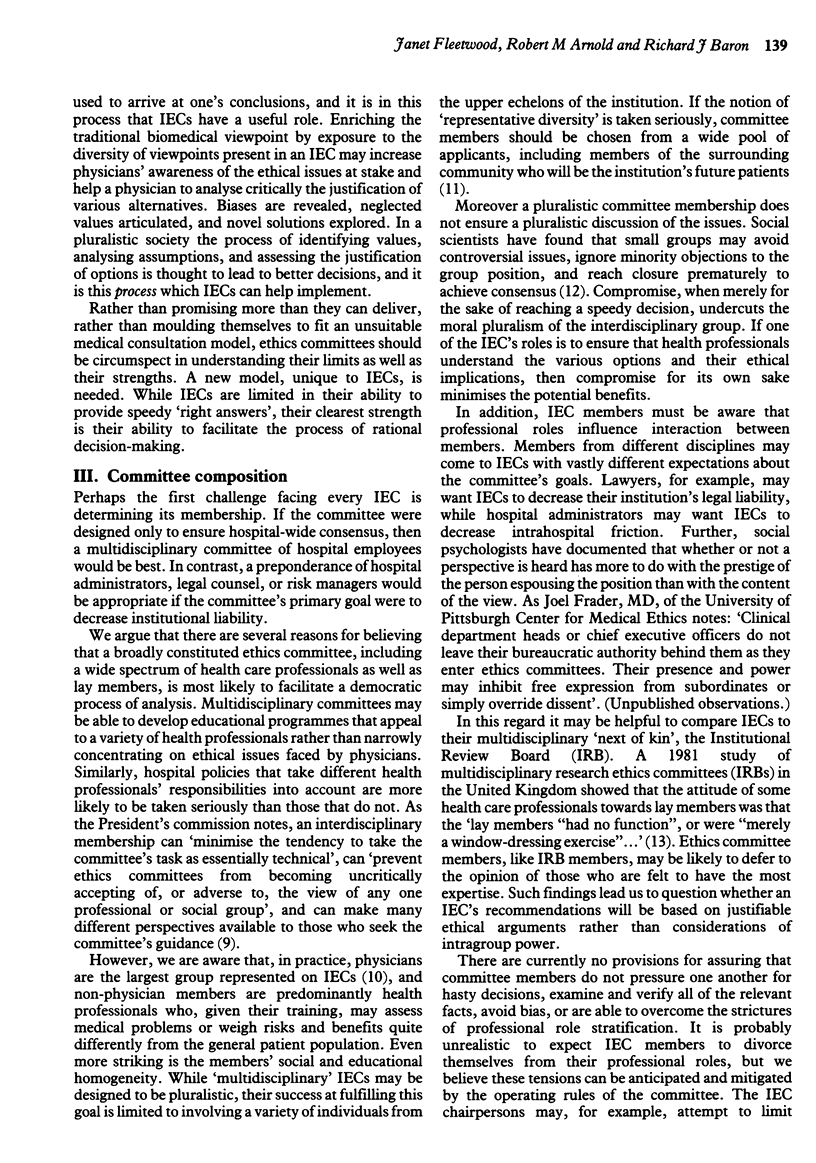
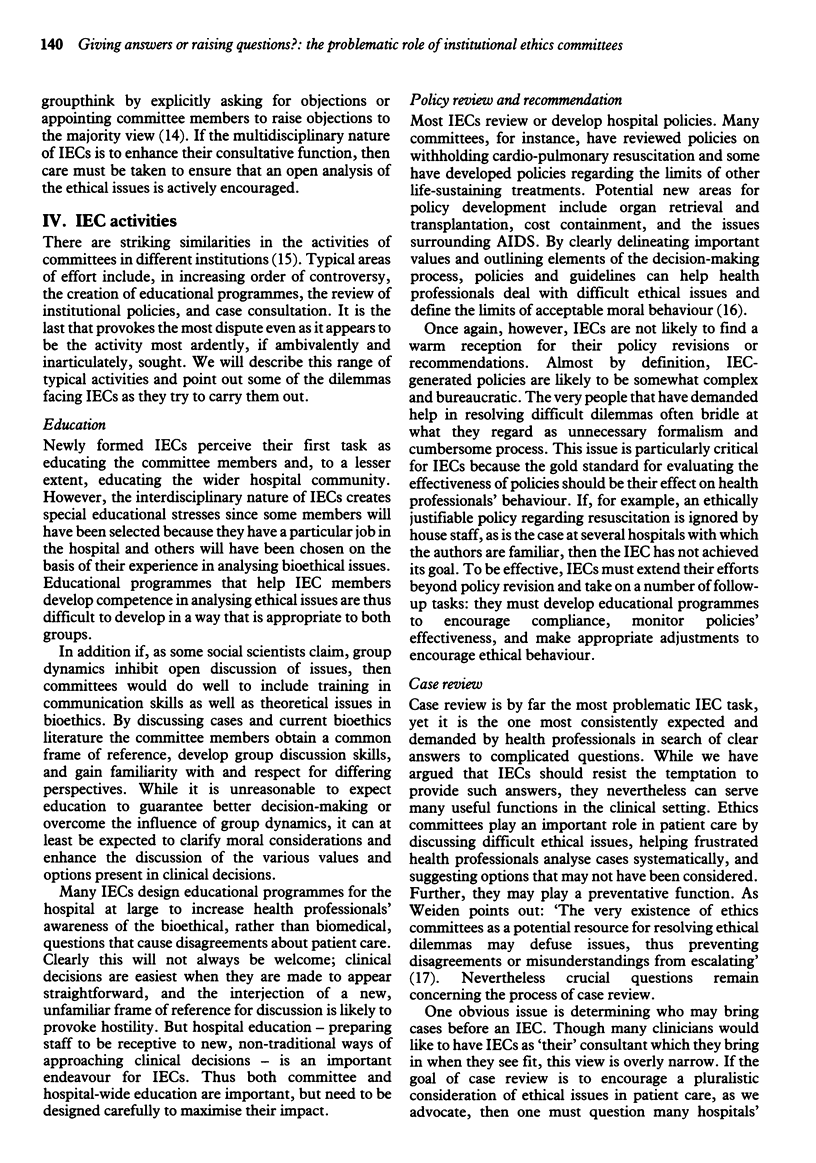
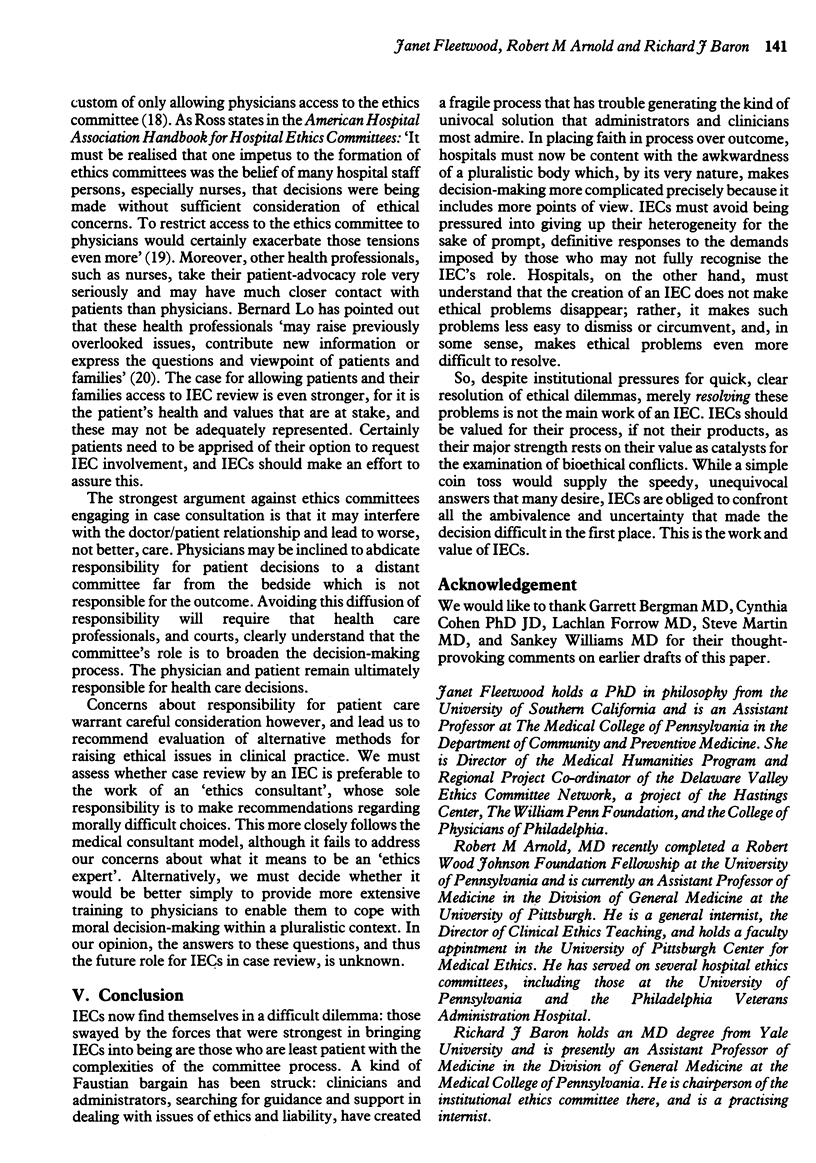
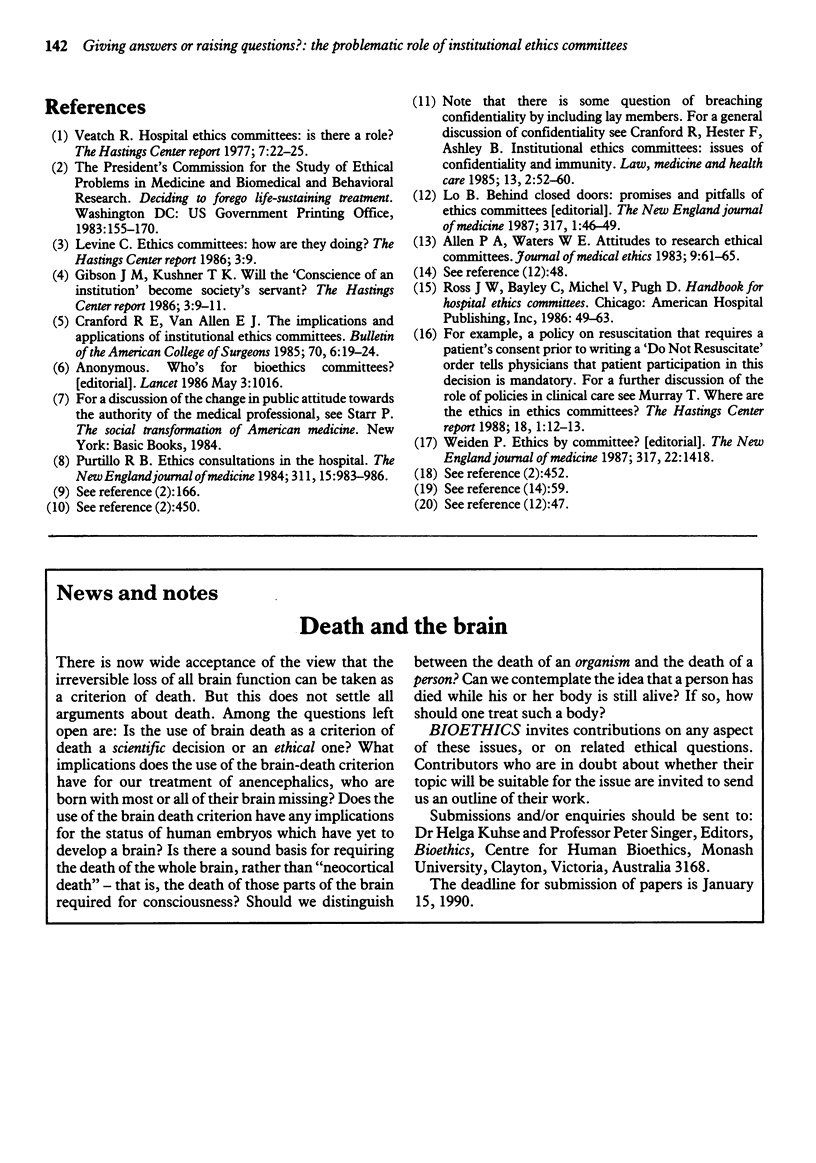
Selected References
These references are in PubMed. This may not be the complete list of references from this article.
- Allen P., Waters W. E. Attitudes to research ethical committees. J Med Ethics. 1983 Jun;9(2):61–65. doi: 10.1136/jme.9.2.61. [DOI] [PMC free article] [PubMed] [Google Scholar]
- Cranford R. E., Hester F. A., Ashley B. Z. Institutional ethics committees: issues of confidentiality and immunity. Law Med Health Care. 1985 Apr;13(2):52–60. doi: 10.1111/j.1748-720x.1985.tb00885.x. [DOI] [PubMed] [Google Scholar]
- Cranford R. E., Van Allen E. J. The implications and applications of institutional ethics committees. Bull Am Coll Surg. 1985 Jun;70(6):19–24. [PubMed] [Google Scholar]
- Gibson J. M., Kushner T. K. Will the "conscience of an institution" become society's servant? Hastings Cent Rep. 1986 Jun;16(3):9–11. [PubMed] [Google Scholar]
- Veatch R. M. Hospital ethics committees: is there a role? Hastings Cent Rep. 1977 Jun;7(3):22–25. [PubMed] [Google Scholar]


